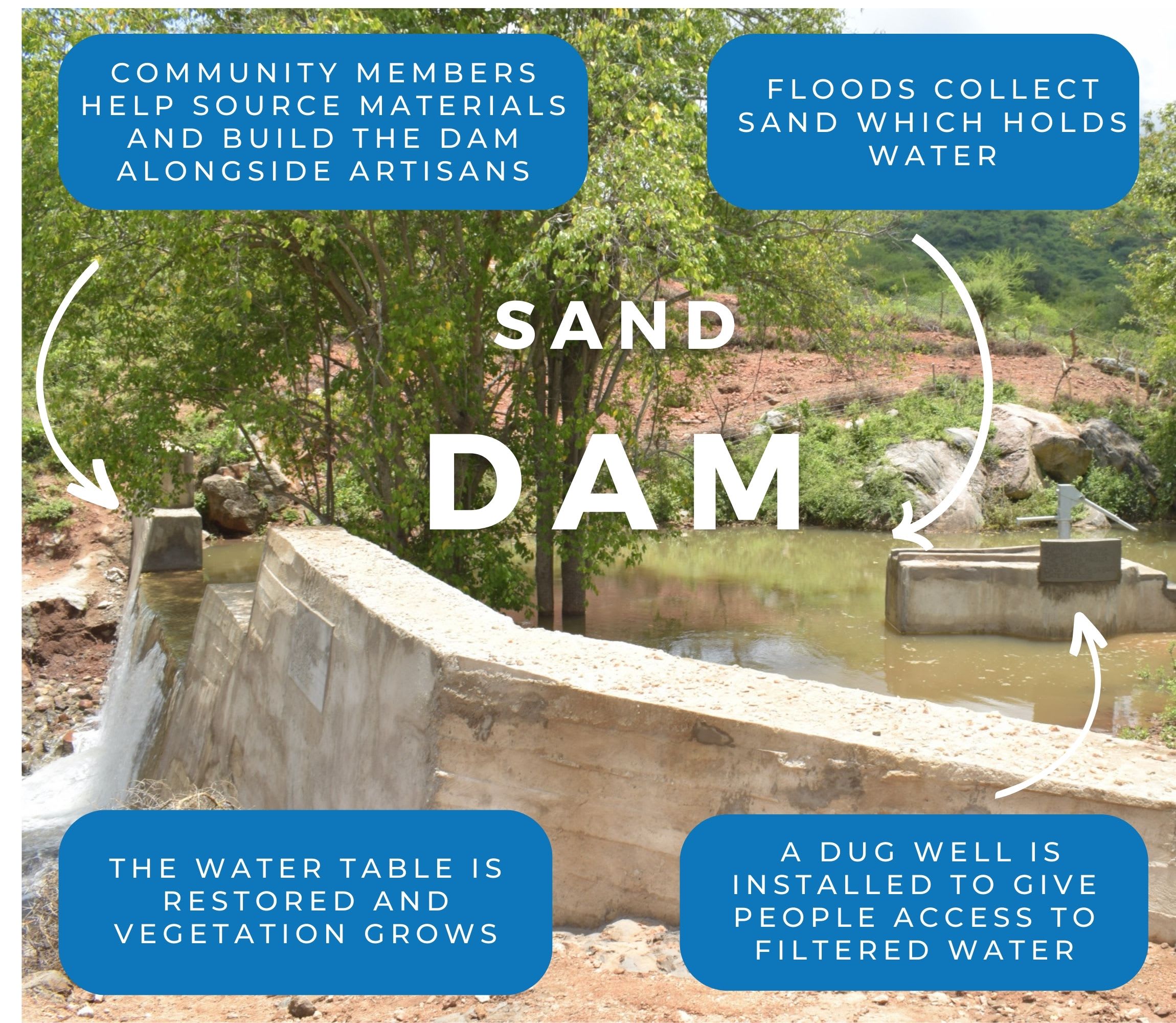Our main entry point into Mwau Community is the Kianguni Self-Help Group, which is comprised of 39 farming households that are working together to address water and food scarcity in their region. These members are our hands and feet in both constructing water projects and spreading the message of good hygiene and sanitation to everyone.
We have worked with this group for the past 3 years to ensure that every person has access to reliable water close to home. While our work together has helped improve accessibility for many people here, there are still households that have to travel too far to get water each day.
It is a physical strain for the members who live far from the water source as they have to walk for long distances and the terrain is not very friendly. Some also opt to fetch water from the river directly to avoid the hustle of getting to the shallow well. If they fetch water directly from the river, the water is not clean for direct consumption as it is exposed to very many contaminants.
"The paths leading to the sand dams are sloped and the terrain is rough which is risky as people are exposed to risks of injuries," said Anastacia Wambua. "The strain in accessing clean water at times forces us to use other sources or purchase water from water vendors who often take advantage of us and deliver dirty water which is often contaminated." Mrs. Wambua's long walk for water has exacerbated these challenges.
That is why we are supporting the construction of a third sand dam and hand-dug well here - to bring water closer to hundreds of more people like Mrs. Wambua.
What we will do:
Sand Dam
After the community picked the spot, our technical team went in and proved the viability by finding a good foundation of bedrock. Now, our engineers are busy drawing up the blueprints. We estimate the dam will be 43.4 meters long and 4.3 meters high.
We are unified with this community to address the water shortage. As more sand dams are built, the environment will continue to transform. As the sand dams mature and build up more sand, the water tables will rise. Along with these sand dams, hand-dug wells (check out the hand-dug well being installed next to this dam) will be installed to give locals a good, safe way to access that water.
Training
Kianguni Self-Help Group and Mwau Community have participated in training sessions that teach about important hygiene practices and daily habits to establish in their homes. Taking good care of themselves and their environment will make for a healthier community.
"Hygiene and sanitation in our homesteads have improved greatly following the training we have been receiving," said Teresia Kabali.
"My children have adopted a handwashing culture, which is an improvement from how we used to live. Our latrines are washed often and we have installed tippy taps near them as well. Fewer cases of diseases have been reported too."
There has been progress, but training is still necessary to ensure continued improvement.
Most homesteads practice high levels of hygiene and sanitation; they safely dispose of garbage, they use latrines and wash their hands after use, proper handwashing habits have been reinforced as most of the members have constructed tippy taps near the latrines. However, this group needs a refresher training on soapmaking as it will go a long way in benefiting the group members.
Community Background
Mwau Village is based in a rural place that is peaceful and relatively vegetated. The buildings throughout the area are a mixture of new and old structures, made of either brick or mud and thatched grass roofing. The homesteads are spread out because most families own large pieces of land.
A recent survey conducted in the area deduced that 68% of the community members carry out casual labor as their main source of income, which involves doing odd jobs in other people’s businesses or farms to earn money. This is regardless of the level of education of the respondent. Only 14% of the respondents reported farming as their main source of income in large part because it is very tough to consistently grow crops in this semi-arid region of Kenya.
On an average day for the community members, the women wake up at 6:00 am, go to fetch water, and prepare breakfast for the family as the children prepare to go to school. The men, on the other hand, wake up to go to the farm to get Napier grass for the livestock and also run errands. During the day, the women wash the family’s clothes, tidy up the house, wash utensils and prepare lunch as well as supper for the family. However, in this community, the parents are older and leave the children to do most of the tasks. The children are the ones who go to the farm, take the goats to search for pasture, fetch the water, prepare meals, and some also go to school.

 Sand Dam
Sand Dam
 Rehabilitation Project
Rehabilitation Project
































